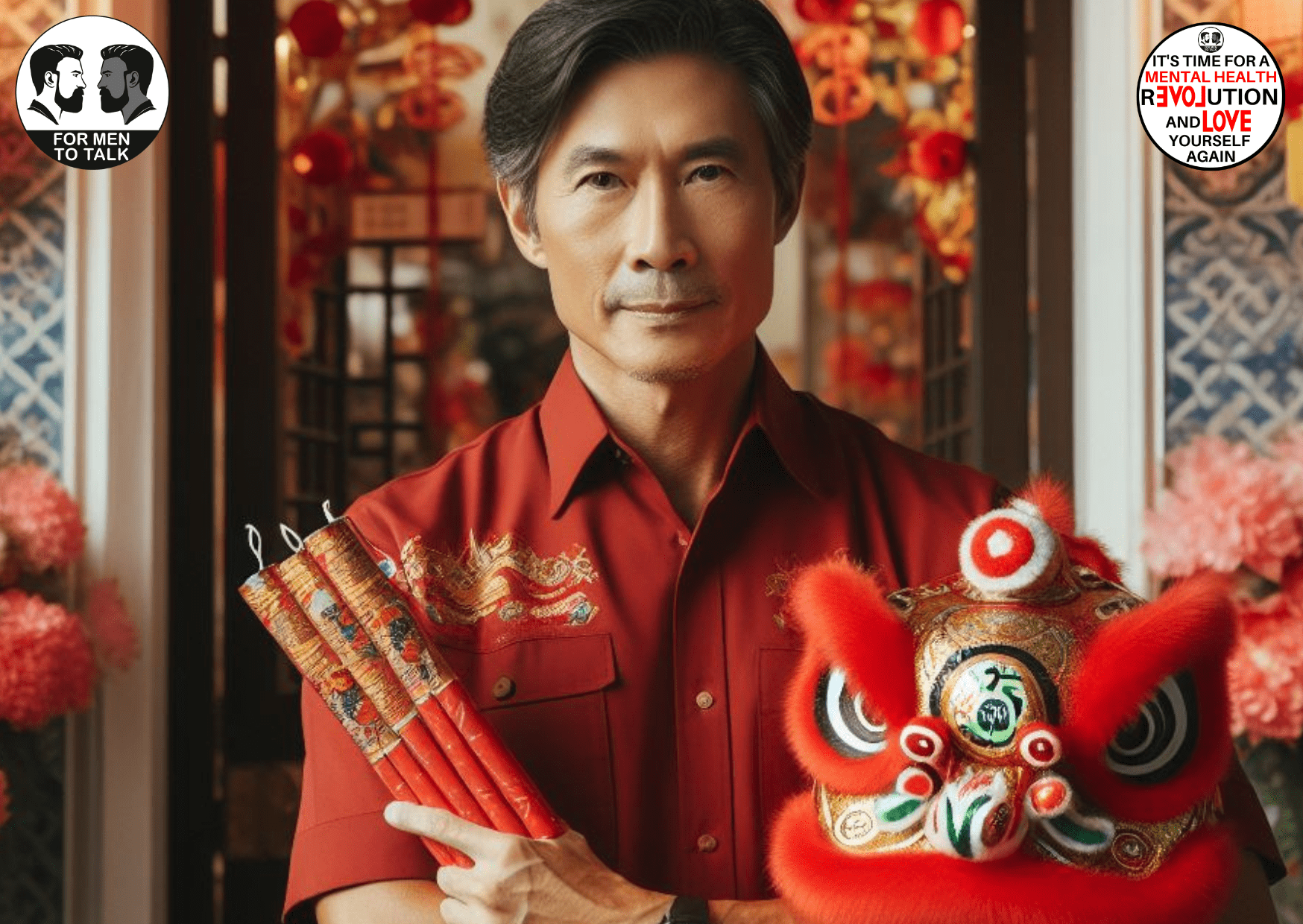The impact of Chinese New Year on men’s mental health

Chinese New Year, also known as the Spring Festival, is one of the most significant cultural celebrations in the world, marked by vibrant festivities, family reunions and traditional customs. However, amidst the joy and excitement of this auspicious occasion, it is crucial to recognise that celebrations like these can also have an impact on mental health, particularly in men. In this blog, we will explore the potential effects of Chinese New Year on men’s mental health and discuss ways to ensure a positive and supportive environment during this festive season.
Social Expectations and Stress
Chinese New Year comes with numerous social expectations, such as participating in family gatherings, engaging in festive activities and presenting auspicious gifts. For men, these expectations can lead to heightened stress levels as they strive to fullfill their roles as providers and protectors of their families. The pressure to meet societal standards and maintain a positive image can lead to anxiety and feelings of inadequacy.
Loneliness and Isolation
For some men, Chinese New Year may evoke feelings of loneliness and isolation, particularly if they are unable to reunite with their families or loved ones during the celebrations. The emphasis on family gatherings and camaraderie can magnify feelings of exclusion and disconnection for those who are far from home or have strained relationships with their families.
Financial Burdens
The festive season often involves significant financial expenses, including purchasing gifts, festive meals and decorations. Men may feel the weight of these financial burdens, especially if they believe they must provide for their families and maintain certain standards during the festivities. Financial stress can contribute to anxiety and feelings of helplessness.
Cultural Norms and Gender Expectations
Chinese New Year can reinforce traditional gender roles, where men may feel compelled to portray strength, stoicism and emotional restraint. The pressure to conform to these norms may discourage men from expressing their feelings or seeking emotional support, which can negatively impact their mental well-being.
Coping with Past Traumas
For some men, Chinese New Year may serve as a reminder of past traumas or difficult family dynamics. The festive atmosphere might trigger emotional responses related to unresolved conflicts or painful memories, potentially leading to distress and emotional instability.
Promoting Men’s Mental Health During Chinese New Year
Encourage Open Communication
Fostering an environment that encourages open communication is essential. Friends and family members should actively listen and offer support without judgment. Creating a safe space for men to share their thoughts and emotions can help alleviate stress and feelings of isolation.
Promote Work-Life Balance
If possible, employers can consider offering flexible working hours around the festive season, allowing men to participate in family gatherings and celebrations. A healthy work-life balance can reduce stress levels and improve overall mental well-being.
Reevaluate Cultural Expectations
It is essential to challenge and reevaluate cultural norms that may perpetuate harmful gender stereotypes. Emphasising the value of emotional expression and vulnerability can promote healthier relationships and support networks.
Engage in Self-Care
Encourage men to prioritise self-care during this festive season. Engaging in activities they enjoy, maintaining a healthy lifestyle and seeking professional help if needed can significantly improve mental health.
Conclusion
Chinese New Year is a time of celebration and renewal, but it can also present challenges for men’s mental health. By understanding and addressing these issues, we can create a more supportive and inclusive environment during the festivities. Encouraging open communication, reevaluating cultural expectations and promoting self-care are essential steps in ensuring that men can enjoy the celebrations while maintaining their mental well-being. Let us embrace the spirit of compassion and understanding during this joyous occasion, extending care and support to those who may need it the most.